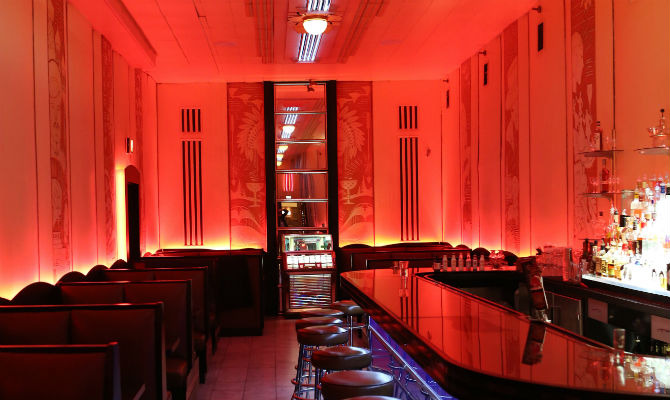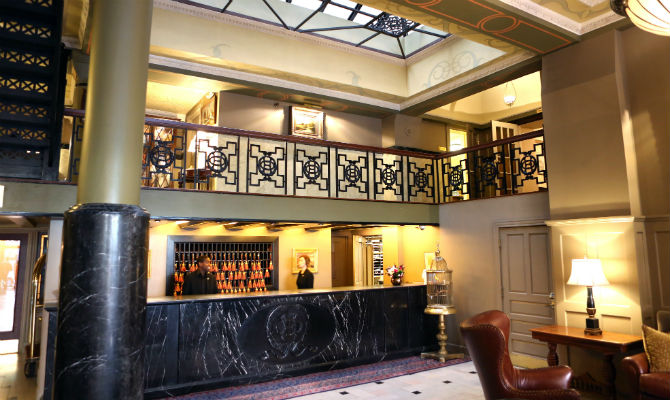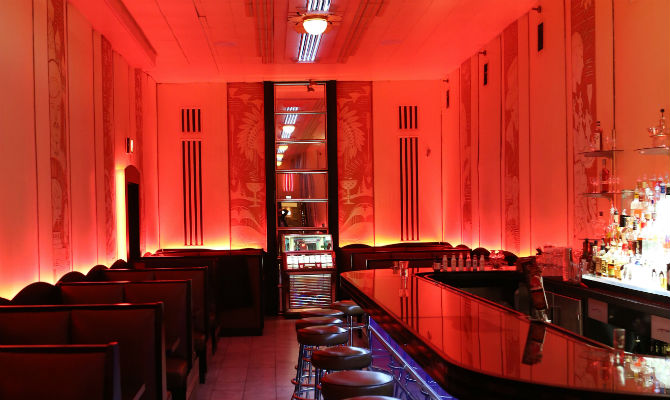The Oxford: Denver's Oldest Historic Hotel
The year was 1891. Benjamin Harrison was president, Thomas Edison received a patent for the motion picture camera, railroads were whisking people from coast to coast, and in Denver, the Oxford Hotel opened its doors to an age of Victorian opulence.
Located just a block from Union Station, the Oxford was constructed by Adolph Zang, owner of the Zang Brewing Company — the largest producer of alcohol in the Rocky Mountain region prior to the advent of Prohibition. Owing to the influence of the railroad, Denver had expanded from a small mining town to become the third largest city in the West. Zang believed that the city needed a first-class hotel to match its growing status and had the five-story brick Oxford Hotel constructed conveniently just a block away from Union Station.
The Oxford was one of the most modern hotels of its day. Denver's leading architect at the time, Frank E. Edbrooke, who also planned the famous Brown Palace one year later, was chosen for the task. Edbrooke incorporated state-of-the-art innovations into his design such as a dedicated power plant, efficient steam heating, and electric and gas lighting. He also created a sensation — the vertical railway, or elevator, to allow guests a grand view of Denver from the upper floors.
The hotel's décor was no less impressive with antique oak furniture, marble floors, stained glass lighting fixtures, and ornate chandeliers. The property had many features that would be considered standard in four- or five-star hotels today, including its own dining rooms, barbershop, library, pharmacy, and Western Union office. Of course, Adolph Zang's influence was reflected in the saloon with its own beer — the Fritz Imperial.
Like many historic hotels, the Oxford has had renovations over the years while still preserving its age-old charm. Room sizes range from Superior (250 square feet) up to the Presidential Suite (700 square feet) with various amenities such as French and English antiques, claw foot bathtubs, and Chinese silk curtains. Modern conveniences are there as well, including flat-screen televisions, complimentary Wi-Fi, and a complete spa and fitness center located adjacent to the hotel.
Today, walking through the hotel is like taking a stroll back in time to a more genteel era. Mosaic tiled floors, Western art, and a blending of old and new design elements all can make you believe that it is 1892 again. I liked the look and feel of the classical Victorian elements, while my wife enjoyed the more modern blending of art deco décor.
Located off of the lobby, the Cruise Room Martini Bar was opened the day after Prohibition was repealed in 1933, and I'm sure it had plenty of business. Run by the adjacent McCormick's Fish House, the Cruise Room is listed in the National Register of Historic Places. Bathed in red light and with an art deco flair, it's the perfect place to enjoy a cool libation and listen to some Frank Sinatra.
Right across the hall, McCormick's Fish House and Bar has been a lower downtown favorite among locals for more than 20 years, serving some of the freshest seafood you will find outside of the East or West Coasts. During happy hour (two times per day, seven days a week), McCormick's offers items for as a little as three dollars.
If you're not planning to come by train, then your car will suit you well. However, once you park, you probably won't need it again until you check out. The 16th Street Mall is only one block away, and free buses will take you up and down the corridor past a host of restaurants, bookstores, and retail shopping. Coors Field (Colorado Rockies) and the Denver Performing Arts Center are also located close to the hotel and accessible by bus or walking.
The Oxford has won its share of accolades, including being listed as one of the Top 50 U.S. Hotels for 2011 by Condé Nast Traveler. Everyone from ambassadors to Lauren Bacall has stayed here, and you too can be a part of the continuing history of the Oxford once you have discovered its charms from a bygone era.
FTC Disclosure: Costs associated with accommodations and food were sponsored by the Oxford Hotel and McCormick's Fish House and Bar.


